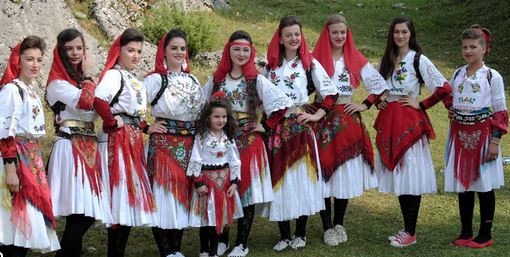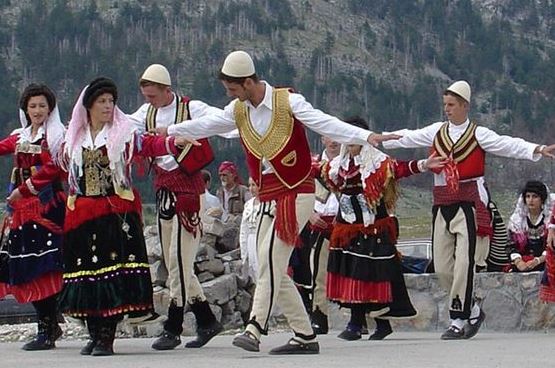Albania, a small country located in Southeastern Europe, is known for its stunning landscapes, rich history, and vibrant culture. The people of Albania, often referred to as Albanians, are at the heart of this cultural tapestry, with traditions, languages, and customs that have evolved over centuries. This article delves into the lives of the Albanian people, exploring their history, culture, and the modern identity that defines them today.
Historical Background
The history of the Albanian people dates back thousands of years. The ancestors of modern Albanians are believed to be the ancient Illyrians, a group of tribes that inhabited the western Balkans. Over time, these tribes were influenced by various empires, including the Romans, Byzantines, and Ottomans, each leaving a mark on the culture and identity of the Albanian people.
During the Ottoman Empire, which ruled Albania for nearly five centuries, many Albanians converted to Islam, which is why Islam is the predominant religion in the country today. Despite the long period of Ottoman rule, Albanians managed to preserve their language, customs, and a strong sense of national identity. This resilience laid the foundation for Albania’s struggle for independence in the early 20th century.
In 1912, Albania declared its independence from the Ottoman Empire, marking the beginning of a new era for the Albanian people. However, the 20th century was turbulent for Albania, with periods of monarchy, occupation during World War II, and decades of communist rule under Enver Hoxha. It wasn’t until the fall of communism in the early 1990s that Albania began to open up to the world, allowing its people to reconnect with their roots and embrace new opportunities.
Language and Identity
The Albanian language, known as Shqip, is a key element of the Albanian identity. It is one of the oldest languages in Europe, with its own unique branch within the Indo-European language family. The language is divided into two main dialects: Gheg, spoken in the north, and Tosk, spoken in the south. The Tosk dialect is the basis for the standard Albanian language used in education, media, and government.
Language plays a crucial role in uniting the Albanian people, not only within Albania but also among the Albanian diaspora. Significant Albanian communities exist in neighboring countries like Kosovo, North Macedonia, Montenegro, and in the global diaspora, particularly in the United States, Italy, and Greece. For Albanians, the preservation of their language is a way of maintaining their cultural heritage and strengthening their national identity.

Cultural Traditions and Customs
Albanian culture is a rich blend of ancient traditions and modern influences. One of the most important aspects of Albanian culture is besa, a concept that translates to “trust” or “faith.” Besa is a code of honor that emphasizes loyalty, hospitality, and the keeping of one’s word. It is a core value in Albanian society and is deeply embedded in the way Albanians interact with each other and with guests.
Hospitality is another hallmark of Albanian culture. Albanians are known for their warm and generous hospitality, often going out of their way to make visitors feel welcome. This tradition is rooted in the belief that guests are a blessing, and it is the host’s duty to ensure their comfort and well-being.
Traditional Albanian clothing, known as veshje tradicionale, varies by region and often reflects the local history and lifestyle. These garments are typically handmade and feature intricate embroidery, colorful patterns, and symbolic motifs. While traditional clothing is mostly worn during festivals and special occasions today, it remains a proud symbol of Albanian cultural identity.
Music and dance are also integral parts of Albanian culture. Traditional Albanian music is characterized by its use of polyphony, a style where multiple vocal lines are sung simultaneously. This ancient musical tradition, particularly in southern Albania, is recognized by UNESCO as an Intangible Cultural Heritage of Humanity. Albanian folk dances, such as the valle and kënga, are lively and often performed during weddings, festivals, and other celebrations.
Religion and Beliefs
Religion in Albania is diverse and reflects the country’s complex history. The majority of Albanians identify as Muslim, primarily Sunni or Bektashi, due to the long period of Ottoman rule. However, Albania is also home to significant Christian communities, both Catholic and Orthodox. What is remarkable about Albania is the level of religious tolerance and coexistence among its people. It is common for Albanians of different faiths to live side by side and celebrate each other’s religious holidays.
During the communist era, Albania was declared the world’s first atheist state, and religious practices were severely repressed. However, since the fall of communism, religious life has gradually revived, and Albanians have been free to practice their faith openly. Despite this, many Albanians today identify more with their national and cultural identity than with any particular religion, reflecting a unique blend of secularism and spirituality.
The Modern Albanian Society
Since the end of communism, Albania has undergone significant social and economic transformations. The country has moved towards a market economy, and Albanians have increasingly engaged with the global community. Education has improved, infrastructure has developed, and the standard of living has gradually risen, although challenges remain.
Young Albanians, in particular, are embracing new opportunities, pursuing education and careers both at home and abroad. The Albanian diaspora continues to play a vital role in the country’s development, with many expatriates contributing to the economy through remittances or by returning to invest in businesses and initiatives.
Despite these changes, Albanians maintain a strong connection to their cultural heritage. Festivals like the Day of Independence on November 28, and Dita e Verës (Day of Summer) on March 14, are celebrated with great enthusiasm, showcasing the enduring pride Albanians have in their history and traditions.
The people of Albania are a testament to resilience, adaptability, and a deep-rooted sense of identity. From their ancient Illyrian ancestors to the modern Albanian society, they have navigated a complex history while preserving their unique cultural heritage. Today, Albanians continue to honor their traditions while embracing the opportunities of the modern world, creating a dynamic and vibrant society.
Understanding the Albanian people provides valuable insight into the rich cultural fabric of Southeastern Europe. Whether through their language, customs, or shared values, Albanians contribute to a diverse and interconnected global community, proudly sharing their heritage with the world.
